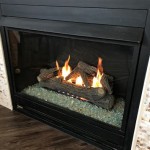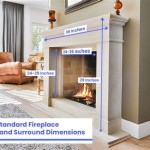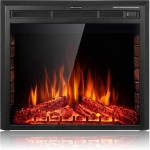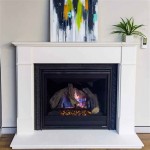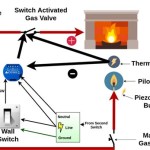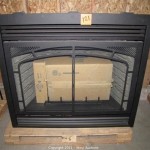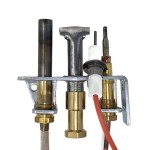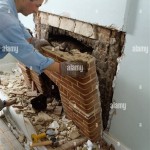Do You Need To Clean The Flue of a Gas Fireplace?
The question of whether a gas fireplace flue needs cleaning is a common one amongst homeowners who utilize this convenient heating appliance. Unlike wood-burning fireplaces, gas fireplaces operate on a cleaner fuel source, leading many to believe that flue maintenance is unnecessary. However, the reality is somewhat more nuanced. While gas fireplaces produce significantly less creosote and soot compared to their wood-burning counterparts, they still generate byproducts that can accumulate within the flue over time. These byproducts, along with other potential obstructions, can compromise the fireplace's efficiency, safety, and overall performance. Therefore, regular inspection and, when necessary, cleaning of the gas fireplace flue are essential for responsible homeownership.
The purpose of a flue, also known as a vent or chimney, in a gas fireplace system is to expel combustion gases, including carbon dioxide, water vapor, and trace amounts of other substances, safely away from the living space. Proper flue function ensures that these potentially harmful gases are directed outdoors, preventing them from accumulating within the home and posing health risks to occupants. A blocked or partially obstructed flue can result in the backdrafting of these gases, leading to indoor air pollution and potential carbon monoxide poisoning. Furthermore, restricted airflow can reduce the efficiency of the fireplace, causing it to consume more fuel to generate the same amount of heat.
Ignoring the maintenance of a gas fireplace flue can lead to a variety of problems, ranging from minor inconveniences to serious safety hazards. Understanding the potential consequences of neglecting this essential maintenance task is crucial for making informed decisions about fireplace upkeep. The frequency with which a gas fireplace flue requires cleaning depends on factors such as the type of gas fireplace, the frequency of use, and the overall condition of the venting system.
Potential Hazards of Neglecting Flue Cleaning
Neglecting to clean a gas fireplace flue presents several potential hazards, primarily relating to safety and efficiency. The most significant dangers stem from the accumulation of byproducts and the potential for obstructions within the flue.
One of the primary concerns is carbon monoxide poisoning. Carbon monoxide is a colorless, odorless, and tasteless gas produced during the incomplete combustion of fuels, including natural gas and propane. A properly functioning flue effectively vents this gas outdoors. However, if the flue is blocked or partially obstructed, carbon monoxide can backdraft into the home. Prolonged exposure to even low levels of carbon monoxide can cause flu-like symptoms, headaches, dizziness, and nausea. Higher concentrations can lead to loss of consciousness, brain damage, and even death. Regular flue inspections and cleaning can help prevent carbon monoxide buildup and ensure the safe ventilation of combustion gases.
Another hazard associated with a neglected flue is the risk of fire. While gas fireplaces produce less creosote than wood-burning fireplaces, they can still generate deposits that accumulate within the venting system. These deposits, along with debris such as bird nests or fallen leaves, can create a fire hazard. If these materials ignite, the fire can spread to the surrounding structure, potentially causing significant damage and endangering lives. A clean flue reduces the risk of fire by removing combustible materials.
Furthermore, a blocked or partially obstructed flue can negatively impact the efficiency of the gas fireplace. Restricted airflow makes it more difficult for the fireplace to burn fuel efficiently. As a result, the fireplace may consume more gas to produce the same amount of heat, leading to higher energy bills. Inefficient combustion can also result in increased production of harmful emissions, contributing to indoor air pollution. Maintaining a clean flue ensures proper airflow, optimizing the fireplace's efficiency and minimizing energy waste.
Finally, corrosion can be accelerated by lingering moisture and acidic byproducts collected inside the flue. This can deteriorate the metal liner or brickwork, resulting in costly repairs or even the need for a complete replacement of the venting system. Addressing minor issues proactively prevents escalation to significant structural problems.
Signs That Your Gas Fireplace Flue Needs Cleaning
Identifying the signs that your gas fireplace flue requires cleaning is crucial for maintaining its safe and efficient operation. While a professional inspection is the most reliable way to assess the condition of the flue, there are several indicators that homeowners can watch for.
One of the most common signs is a noticeable odor emanating from the fireplace when it is in use. A properly functioning gas fireplace should burn cleanly and produce minimal odor. If you detect a strong or unusual smell, such as a sulfurous or musty odor, it could indicate a buildup of deposits within the flue. This odor may also suggest a gas leak, which is a serious safety concern that requires immediate attention. It is advisable to shut off the gas supply and contact a qualified technician to inspect the fireplace and venting system.
Another sign is the presence of soot or debris around the fireplace opening. While gas fireplaces produce less soot than wood-burning fireplaces, some soot may still accumulate over time. If you notice black or gray deposits around the fireplace opening, on the glass door, or on the surrounding surfaces, it could indicate that the flue is not venting properly. The presence of debris, such as bird nests or leaves, is also a clear indication that the flue is obstructed and needs cleaning.
Visible signs of damage to the fireplace or venting system can also indicate the need for flue maintenance. Cracks, gaps, or corrosion in the flue liner or chimney can compromise its structural integrity and allow combustion gases to leak into the home. If you notice any visible damage, it is essential to have the fireplace and venting system inspected by a qualified professional. Addressing minor damage promptly can prevent it from escalating into more significant and costly problems.
Difficulty starting the fireplace or maintaining a consistent flame can also be a sign of a problem with the flue. A blocked or partially obstructed flue can restrict airflow, making it more difficult for the fireplace to ignite and burn properly. If you experience difficulty starting the fireplace, or if the flame is weak or flickering, it could indicate that the flue needs cleaning. Inefficient combustion can also result in increased emissions and higher energy bills.
The Cleaning Process and Professional Expertise
The process of cleaning a gas fireplace flue involves removing accumulated deposits and obstructions from the venting system. While some homeowners may be tempted to attempt this task themselves, it is generally recommended to hire a qualified professional. Gas fireplaces and their venting systems are complex, and improper cleaning can damage the equipment or create safety hazards.
A professional chimney sweep or fireplace technician will have the necessary tools and expertise to safely and effectively clean the flue. They will typically start by inspecting the fireplace and venting system to assess the extent of the buildup and identify any potential problems. They will then use specialized brushes and other tools to remove deposits from the flue liner. In some cases, they may also use a vacuum to remove loose debris.
During the cleaning process, the technician will also inspect the flue for any signs of damage, such as cracks, gaps, or corrosion. If they find any damage, they will recommend appropriate repairs. It is essential to address any damage promptly to prevent further deterioration of the flue and ensure the safe operation of the fireplace. The technician should be certified by a reputable organization, such as the Chimney Safety Institute of America (CSIA), to ensure they have the necessary training and experience.
Even if a homeowner feels confident in their ability to clean the flue, it is still advisable to have the fireplace and venting system inspected annually by a qualified professional. A professional inspection can identify potential problems that may not be visible to the untrained eye. Early detection and repair of problems can prevent them from escalating into more significant and costly issues. A professional inspection will include checking for gas leaks, carbon monoxide leaks, and proper draft.
Regular maintenance, including flue cleaning, is essential for ensuring the safe and efficient operation of a gas fireplace. While gas fireplaces produce less creosote than wood-burning fireplaces, they still generate byproducts that can accumulate within the flue over time. Neglecting flue maintenance can lead to carbon monoxide poisoning, fire hazards, reduced efficiency, and other problems. By following these guidelines and consulting with qualified professionals, homeowners can ensure that their gas fireplaces operate safely and efficiently for years to come.

Do Gas Fireplace Chimneys Need Cleaning Fresh Air

The Need To Clean Chimney Of A Gas Powered Fireplace

How Much Cleaning Do Gas Fireplaces Need Batts Chimney Services

How Much Maintenance Does A Gas Fireplace Need Vertical Chimney Care

Do Gas Fireplaces Need To Be Cleaned Direct Learning Center

Do Gas Fireplaces Need To Be Cleaned The Answer Is Yes Here S Why

If You Have A Gas Fireplace It May Or Not Chimney Flue

Chimney Cleaning For Gas Fireplaces Tx Masters Services

What Happens If I Skip Getting My Gas Fireplace Serviced

Reasons Why It S Necessary To Clean Your Chimney Fireplace Regularly

